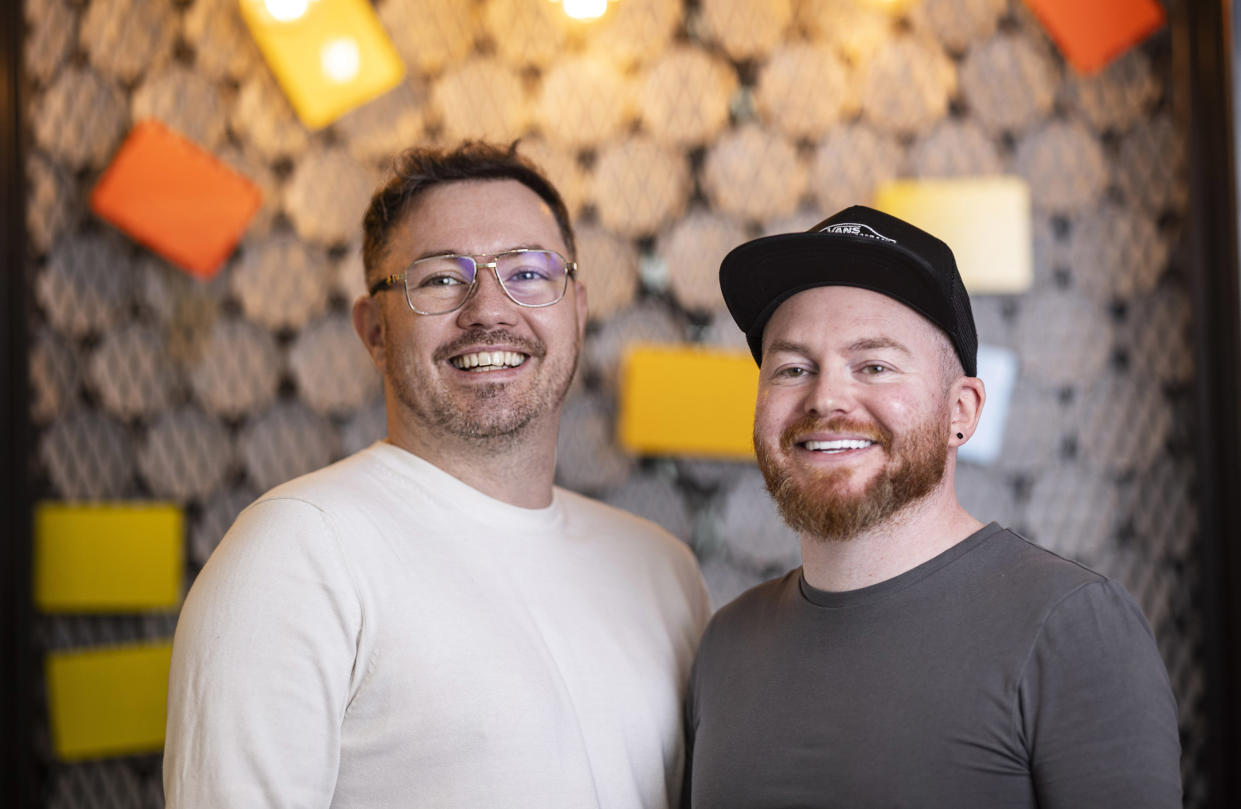Devastated by his videos being posted to a porn site, this founder hit on an AI startup idea

Dan Purcell, the founder and CEO of Ceartas, recalls feeling devastated when he realized that a former partner had, unbeknownst to him, uploaded private, intimate videos of them onto a porn site.
Over a call, Purcell told me, “I was dating a girl who was in the tech industry, and she asked me if I wanted to make some personal videos with her. About four or five years later, they all ended up on the internet, and I was the last one to find out. My then-girlfriend slid her phone across the counter to me with the videos on the phone. It was pretty horrible.”
Purcell then looked into services that could help him take the videos down, but most were aimed at large enterprises rather than creators. “There wasn't really anything out there to help individuals," he recalled.
Resolved to come up with a solution to help prevent such violations, Purcell roped in his co-founder Jonny Smyth (now CTO of the startup) to build Ceartas in 2021. The startup applies AI to bolster brand protection and anti-piracy services for content creators and brands and has now raised $4.5 million in a seed round from Earlybird Venture Capital, as well as Upside VC, a fund established by Sidemen, a YouTube influencer group.
Ceartas’ claim is that it automates the delisting process and can identify deepfakes quickly. Leveraging its proprietary AI platform, the company's product scans digital platforms to identify unauthorized content, including deepfakes. It then de-indexes the content and automatically issues legal DMCA (Digital Millennium Copyright Act) takedown notices for pirated content. The platform claims its system significantly lowers problematic content’s visibility on Google by 98%.
Purcell said Ceartas is currently aimed at YouTubers and Instagram users, but he added that as the company moves into the enterprise space, it would be tuning the service to consider physical goods, such as counterfeit merchandise. "We've used the content creators to build out that model — essentially, build up a dataset,” he added.
Based out of Dublin and Berlin, the company plans to open an office in Los Angeles and has signed partnerships with platforms such as OnlyFans and Fanfix (a content monetization platform for creators). As well as working with influencers like Sidemen, Ceartas has partnered with physical goods brands that put their content on social media.
Ceartas has four main competitors in this space: Rulta also offers DMCA takedown services to creators on Twitch, OnlyFans, X, Patreon and other platforms, and BranditScan offers similar services. In the B2B brand protection space, Red Points out of Barcelona has raised $106.6 million, and Vobile, which caters to large enterprises in movies and TV content, has raised $181.6 million.
All companies that submit DMCA notices, especially to Google, are publicly identified and scored based on the accuracy of the removals they facilitate. This information is part of a public repository called the Google Transparency Report, and also the Lumen Database.
On Google Web (removals of images aren't scored), Ceartas is rated as having delisted about 90% to 100% of the URLs it has tackled. On Google's transparency index, Rulta is at 63%, BranditScan at 54%, Red Points at 31%, and Vobile at 42%.
These numbers suggest that an AI-driven approach is likely to overtake older delisting methods in the near future.
Purcell said, “We've essentially built out our own dataset using machine learning. The AI is contextually aware. The AI will go look at the page. It'll use things like optical character recognition to look at watermarks, face recognition, and if people are leaving disparaging comments or sexualized comments. If it's above 90%, it will automatically send a legal notice. If it's under 90%, it goes to a copyright specialist for a manual review. The legal notices are written by lawyers. We work with a law firm in LA called Morrison Cooper.”
He added that the firm has a provisional patent on the AI model, as it doesn't rely on any third-party technology.
Purcell said the startup chose to work with Earlybird because the VC firm had been proactively looking to back a company in the brand protection space. “We didn't actually go out and pitch them; they actually found us," he told me. "They’d been researching this since 2019, and they couldn't find anybody who could scale it and monetize it. So when we pitched them, they pitched us back."
Andre Retterath, a partner at Earlybird, said in a statement: “Across media and the entertainment industry, individuals and enterprises alike are facing unprecedented piracy challenges. … Training modern AI large language models (LLM) also opened the floodgates for the use and dissemination of unauthorised content.”
The recent funding round also draws backing from new angel investors: Thomas Hesse (former president of Sony Music), Andrej Henkler (10x Founders), Michele Attisani and Niccolo Maisto (Faceit), and Ryan Morrison (Evolved Talent/Morrison Cooper), among others from the gaming, content creation, music and television sectors.

 Yahoo Movies
Yahoo Movies 
